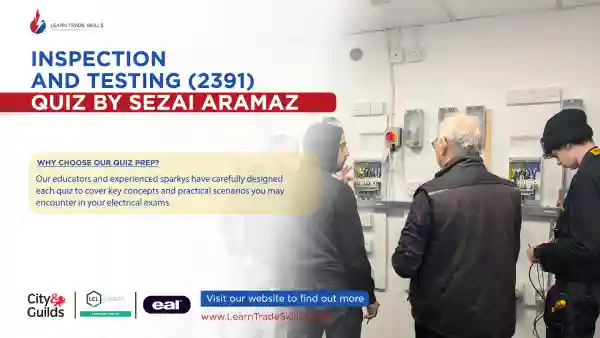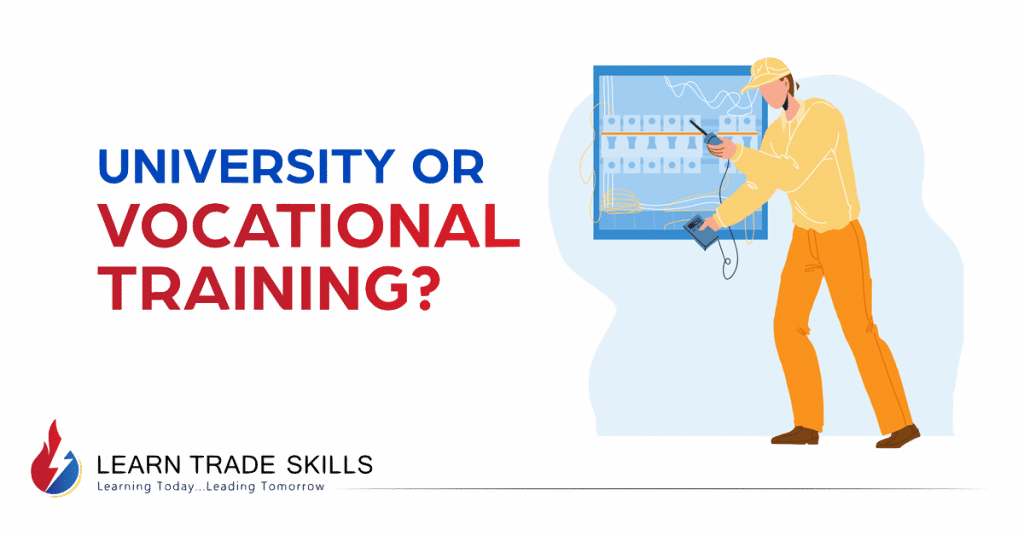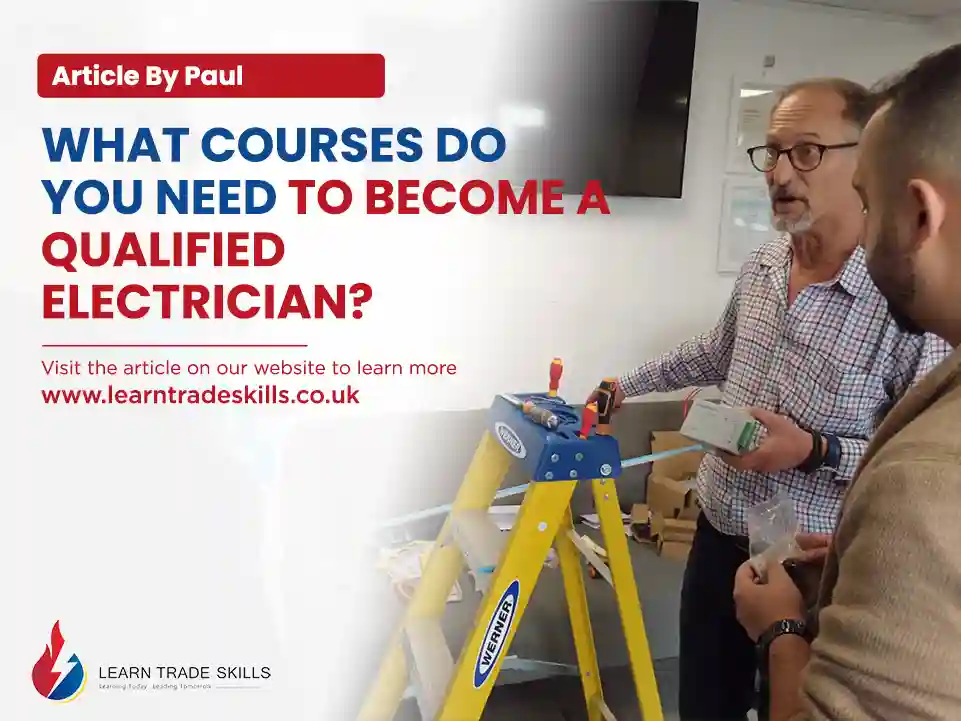

However, this does not always pay off and in this article, we will highlight how vocational courses like electric, gas, and plumbing, can be more rewarding than an average University degree.
We have compared and contrasted the Price, Time, Class Density, Requirements, and Career Options for either path of University Degree or Vocational Training Course down below.
The biggest obstacle to either University or Vocational Training Course is the resources needed to finance it. UK university fees stand at an average £9,200 a year. For 3 years that is £27,600. Most people will need to take a student loan for this, meaning with interest, this expense is a £50,000 debt. You will have to start paying this back, once you start earning £25,000, which you would be hoping to earn once you do graduate.
On the contrary, vocational training courses usually cost anywhere in the region of £5,000-£7,000. At Learn Trade Skills, an electrician course costs around £3,500. Click here for more info. With these qualifications, you could complete and certify both domestic and commercial electrical installation and start earning money quickly. From here you can carry on investing in your qualifications through other courses.
A usual university course would last at least 3 years maybe more depending on the course. If you wanted to progress even further into that field, you could do a Masters’s degree which would last at least a year, and there on a Ph.D., which could potentially last as long as an additional 8 years.
Vocational training course are usually much quicker than that. On average, it takes a student 1-2 years to complete. With our Professional Electrician Package, you can gain the necessary qualifications required to do domestic and commercial work within 30 working days. You can start earning money in 30 working days and earn around £30k a year. Read this article for more detail.
Commonly, universities usually have around 100 people in a standard lecture and around 15–25 in a seminar.
Whereas in vocational training, classes tend to be much more focused towards 10 students. Learn Trade Skills for instance limits each class size to a maximum of 10 or 12 therefore giving you a better one to one experience with your trainer.
It is compulsory to have some sort of qualifications equivalent to A-levels to be offered a position at University. Depending on the course and University, the expected number of A-Levels and grades will vary, however this is usually expected to be around three A-Levels with B grades on average.
Vocational Training would not have the same level of high requirements. Many training centres, like Learn Trade Skills, will ask for a minimum of English and Maths A*-C grades to take you on. However, some other training centres may ask for up to 5. With electrician courses, you would also require not to be colour-blind to be able to identify cable colours correctly.
University student’s employability depends upon the degree that the student studies. You can expect this to be hard if you have studied a degree that is not heavily sought after. Now that 50% of students go down the avenue of studying a degree after Sixth Form or College, the market is oversaturated and millions of graduates are now either unemployed or overqualified for positions they work in.
After a Vocational Training course, it is general practice for you to find employment at a quicker pace. Many who enter into a trades industry work self-employed and as written in our article about How Much Electricians Earn? (which you can click here for), electricians are in heavy demand and earn around £40k+ (in London) on average. Simply because there is a lack of them in the market and high demand as we will always need tradespeople.
Truly, the only way for university to pay off, is if it is essential for career progression in a particular industry like medicine, law, dentistry, engineering or architecture. Otherwise, you can saddle yourself with a lot of debt and not receive the financial benefit of it.
Nonetheless, you should always do whatever you feel like is the right thing for you and the career you want and this article is only here so you can consider all your options and that you do not feel pressured to do anything over the other. When contemplating career paths, exploring alternatives such as electrician training courses could offer viable options worth considering.
Tolga Aramaz is the Director of Learn Trade Skills (LTS), a family-run training centre specialising in electrical installations. With years of experience and a deep understanding of the electrical industry, Tolga is known for their exceptional organisational skills, attention to detail, and commitment to delivering outstanding results. They provide valuable insights and guidance to electricians, contractors, and businesses, ensuring compliance with industry regulations and safety protocols. Through engaging training programmes and consultancy services, Tolga empowers professionals to excel in their roles, fostering long-term relationships built on professionalism and customer satisfaction.



© Copyright Learn Trade Skills 2025
“Lorem ipsum dolor sit amet, consectetur adipiscing elit. Ut pretium tristique purus nec consectetur. Nulla feugiat eget tellus aliquam scelerisque. Sed eget luctus enim, sed mattis enim. Lorem ipsum dolor sit amet, consectetur adipiscing elit. Ut pretium tristique purus nec consectetur. Nulla feugiat eget tellus aliquam scelerisque. Sed eget luctus enim, sed mattis enim.Nulla feugiat eget tellus aliquam scelerisque. Sed eget luctus enim, sed mattis enim. Lorem ipsum dolor sit amet, consectetur adipiscing elit. Ut pretium tristique purus nec consectetur. Nulla feugiat eget tellus aliquam scelerisque. Sed eget luctus enim, sed mattis enim.”
William Goss
Electrician course
11/11/2024